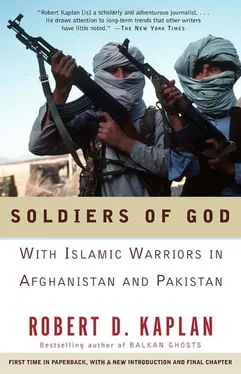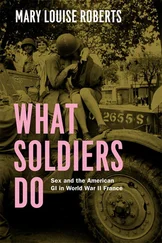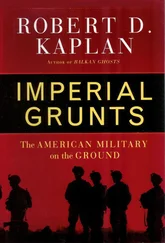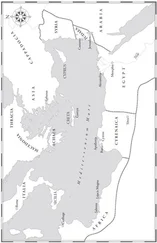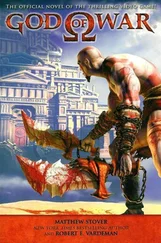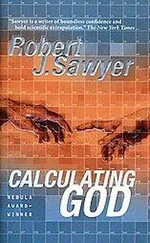And there was another factor: our own insecurity that was partly a result of our experience in Vietnam, where we assumed a knowledge of the local people and their culture which we either did not have, or neglected to properly employ. So this time better to listen to the Pakistanis, they were the real experts on the region. Once again, trauma and guilt over Vietnam helped lead to a grave mistake. For Hekmatyar’s ability to unleash chaos in Afghanistan following the Soviet withdrawal, and his inability to end what he had begun, led directly to the birth of the Taliban, who would provide Osama bin Laden with a safe haven for terrorizing the United States.
Hekmatyar went into exile for a time in Iran after the Taliban’s ascension to power. But he should never be ruled out of any future scenario: he is charismatic, organized, and absolutely ruthless. As for some of the other characters in Soldiers of God, here is what has happened to them:
Ahmad Shah Massoud, the resourceful mujahidin leader in northern Afghanistan, held power for a time in Kabul in the early 1990s. But he was far less successful as a political leader than he had been as a guerrilla fighter. His minority status as an ethnic Tajik in a country dominated by Pathans (alternatively spelled as Pushtuns or Pashtoons) was a drawback. After the Taliban emerged, Massoud went back to the hills with his men. He represented the most potent military force against the Taliban, just as he had against the Soviets. Indeed, Massoud might be considered among the greatest guerrilla fighters of the twentieth century, putting the Afghans in the same category as the Vietnamese and the Eritreans. Unable to match Massoud in the field of battle, Osama bin Laden dispatched him with a suicide bomber disguised as a journalist, to whom Massoud unwittingly granted an interview. Massoud died in September 2001, the same week of the terrorist attack against the World Trade Center and the Pentagon.
Hamid Karzai, the most moderate and Westernized of the mujahidin in Soldiers of God, has, despite the radicalization of Afghanistan, remained central to its politics. Because of his talent, education, and royal lineage — Karzai’s roots go back the first Afghan king, Ahmad Shah Durrani — he was a deputy foreign minister in a mujahidin government from 1992 to 1994, was even courted for a time by the Taliban, and will likely play a role in any post-Taliban government that emerges in Afghanistan. Karzai’s father, Abdulahad Karzai, the headman of the Popolzai branch of the Pathans, was assassinated in July 2000, reportedly by the Taliban.
Abdul Haq, among the most notable Pathan commanders against the Soviets in the mid-1980s, was losing relevance as Soldiers of God went to press in January 1990. He lived for a time in the Arabian Gulf. Still, he remained a prominent figure in Afghan refugee circles, and as a moderate pro-Western ex-mujahidin commander with Islamic credentials, he has recently been reported to be playing a significant role in plans for a post-Taliban Afghanistan. Haq is smart, has a record of political prescience, and understands the West better than many other mujahidin. In 1999 Haq suffered a major tragedy. His wife and son were assassinated in their home in Pakistan’s Northwest Frontier. Some reports linked the murderers to the Taliban, whose intention was to kill Haq. But he was not at home.
Yunus Khalis, the crusty red-beard who led the strongest mujahidin group in eastern Afghanistan, died some years ago. It was in the Islamic academies run by Khalis in the Pakistani borderlands where elements of the Taliban first emerged in the mid-1990s. A plantation owned by Khalis in eastern Afghanistan has been linked to one of bin Laden’s training camps.
One night, in particular, summed up the mystery of the Afghan-Pakistani borderlands. I had gone with another journalist to visit the headquarters in Peshawar of the mujahidin warlord of eastern Afghanistan, Jallalhuddin Haqqani. Haq-qani was a fierce fighter who was being helped not only by the CIA, via the Pakistani intelligence services, but also by wealthy Wahabi extremists from Saudi Arabia. It was dark and smoky that night in the room where Haqqani had been holding court to a group of leading Saudi radicals. Everywhere on the Northwest Frontier the mujahidin welcomed journalists into their homes. Suddenly, here it was different. I will never forget the anger in the eyes of those Saudis when my and friend and I, obviously Westerners, entered to talk with Haqqani. No tea was offered. We took the hint and left. When Osama bin Laden first appeared in news stories in the early 1990s, I began to wonder if, perhaps, he had been among the Saudis in the room that night.
Though he probably wasn’t, I still missed the story. I never gave sufficient attention in my reporting to the incubating menace posed by some of the most radical elements attracted to the mujahidin from other parts of the Islamic world; or how a movement that for the moment served American interests might next turn against America. It was the knowledge of my failure that partly motivated my return to the region in the spring of 2000, a trip that resulted in “The Lawless Frontier,” which serves as a coda to Soldiers of God.
Prologue

Walking Through a Minefield
AMPUTATIONS were the most common form of surgery in Afghanistan in the 1980s. A West German doctor, Frank Pau-lin, traveled around Nangarhar province in April 1985, cutting off the limbs of mine victims with a survival knife. “Sometimes I’d use a saw, basically anything I could get my hands on,” he recollected. The only anesthetic that Paulin had available for his patients was ordinary barbiturates. Some of the patients died, but the ones who survived wouldn’t have had a chance without him. Radio Moscow accused Paulin by name of being a “CIA spy.” While being hunted by Soviet troops, he contracted cholera and had to be carried on the back of a mule over a fourteen-thousand-foot mountain pass to safety in Pakistan. Paulin had only one fear: that he too would step on a mine.
An Afghan who stepped on a mine frequently died of shock and loss of blood a few feet from the explosion. More often, he was carried by a relative or friend to a primitive medical outpost run by someone like Paulin. If the victim was really lucky, he made it to a Red Cross hospital in Quetta or Peshawar over the border in Pakistan — antiseptic sanctuaries of Western medicine where emergency surgery was conducted around the clock.
I remember a Scottish surgeon at one of these hospitals who had just come off a long shift and needed to talk and get a little drunk. In the bar at Peshawar’s American Club, he sat at a table with me and two other journalists and recited from memory several stanzas of Rudyard Kipling’s poem “The Ballad of East and West” in a deliberately loud and passionate voice, as if to demonstrate that he didn’t give a damn what people thought of him:
“Kamal is out with twenty men to raise the Border-side, And he has lifted the Colonel’s mare that is the Colonel’s pride. He has lifted her out of the stable-door between the dawn and the day, And turned the calkins upon her feet, and ridden her far away.”
At the table there was an embarrassed silence. Then the surgeon talked about what was really on his mind. “The philosophy of war is truly sinister,” he said in a hushed tone. “Now, you take the Russians. Most of the mines they’ve laid are designed to maim, not kill, because a dead body causes no inconvenience. It only removes the one dead person from the field. But somebody who is wounded and in pain requires the full-time assistance of several people all down the line who could otherwise be fighting. And if you want to depopulate an area, then you want many of the casualties to be small children. The most stubborn peasants will give up and flee when their children are mutilated.”
Читать дальше
